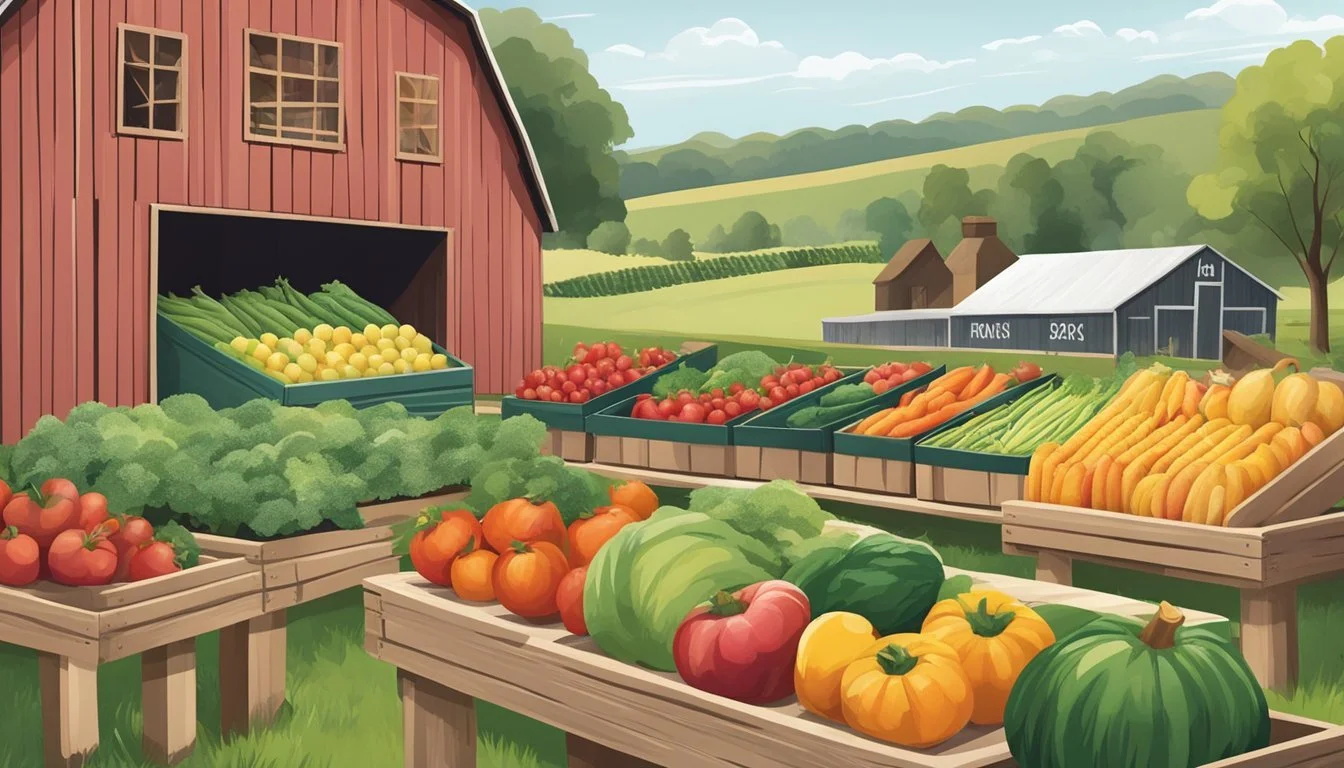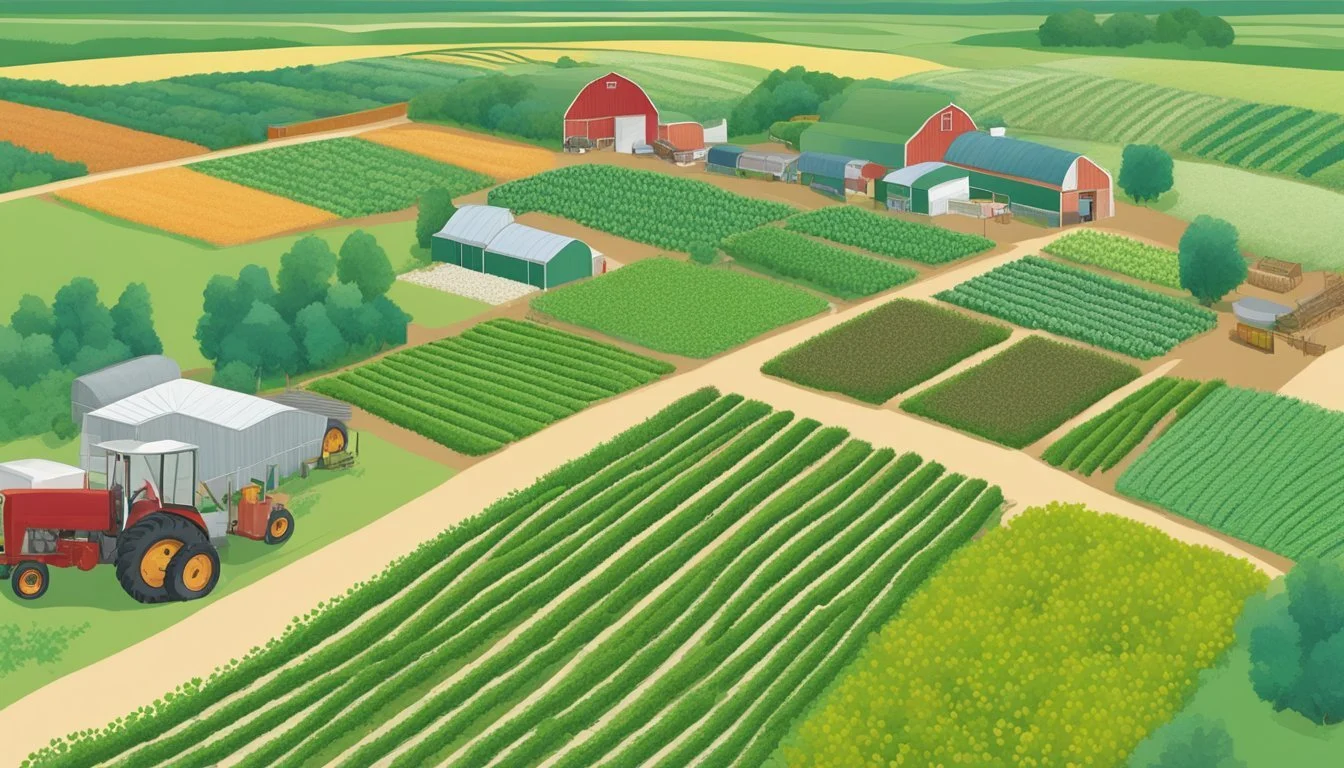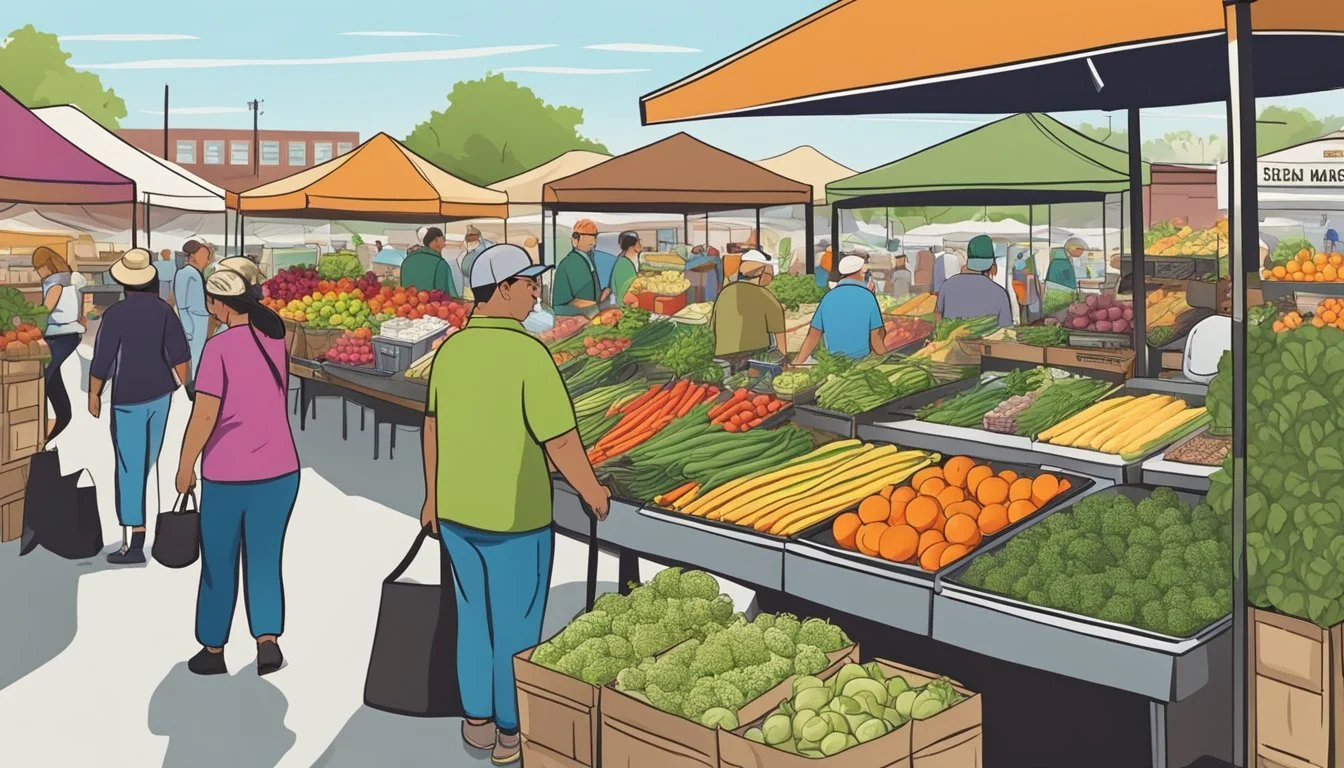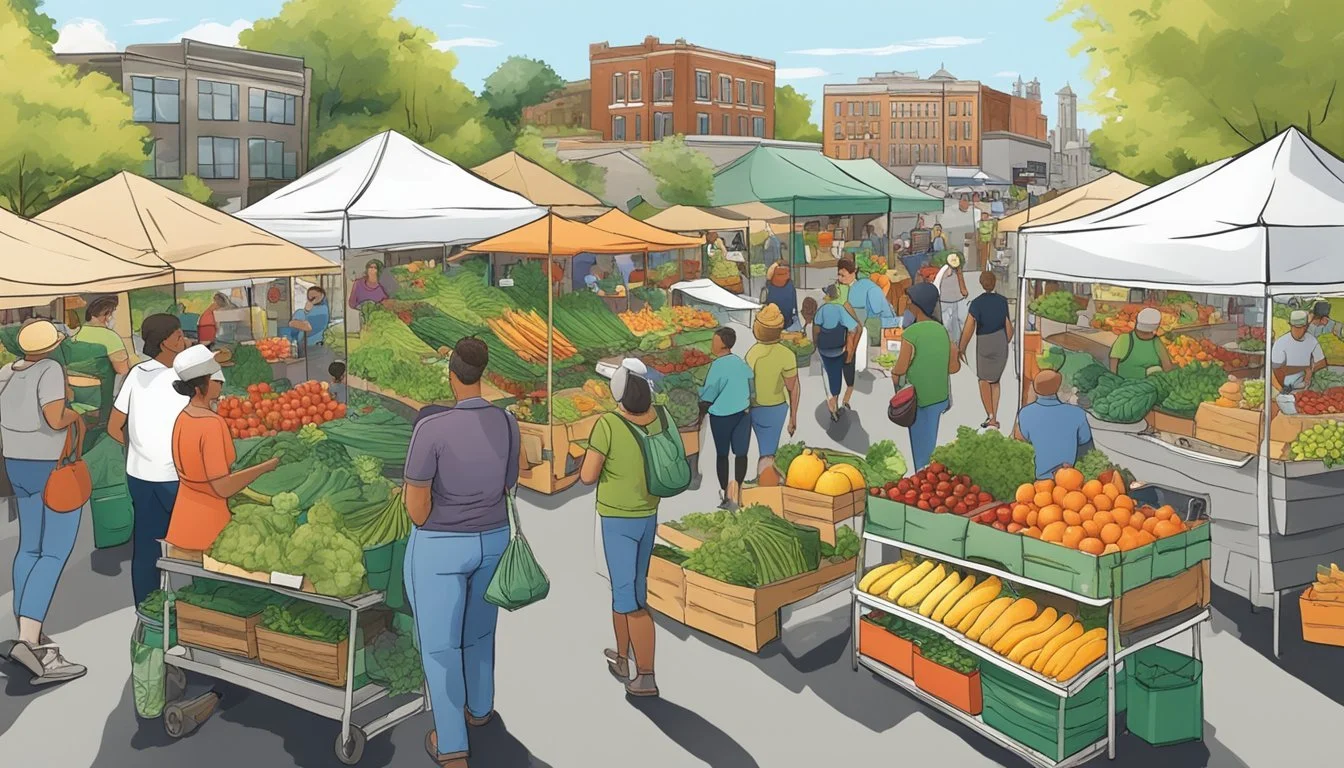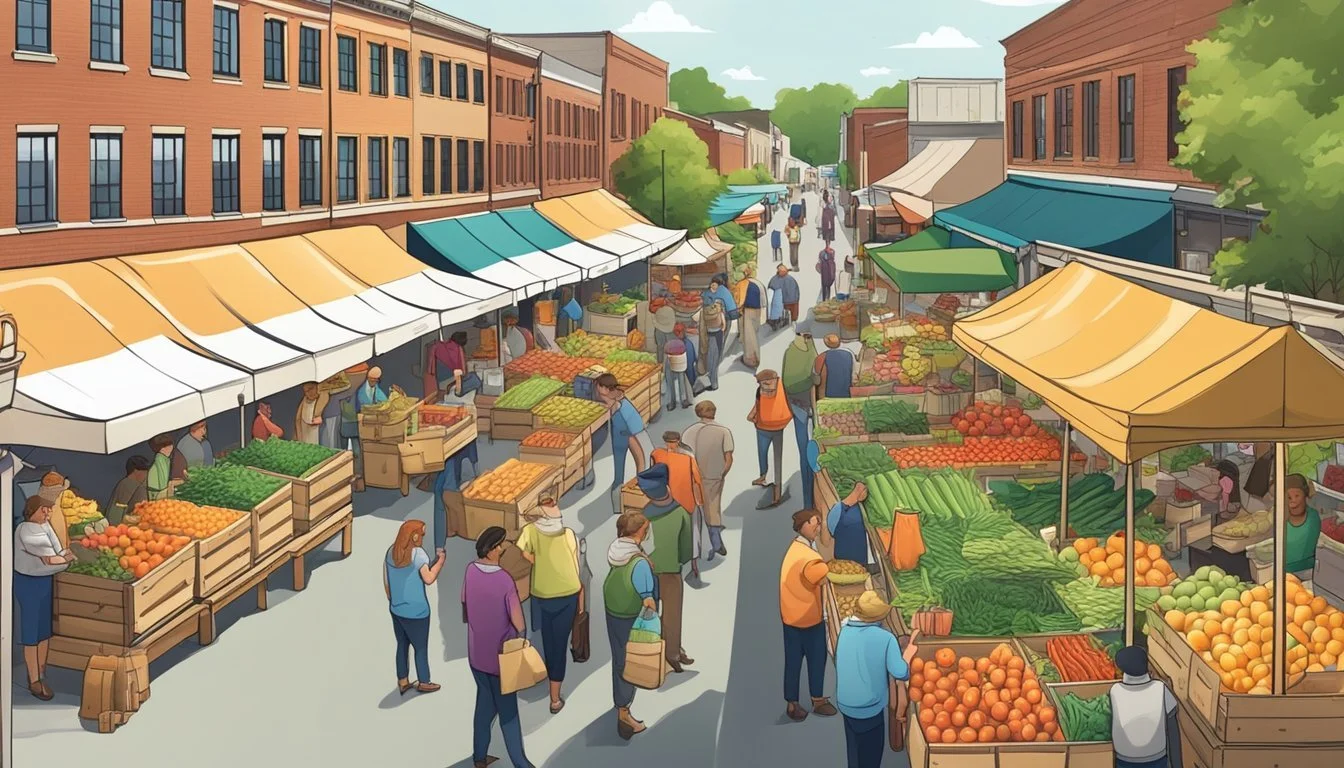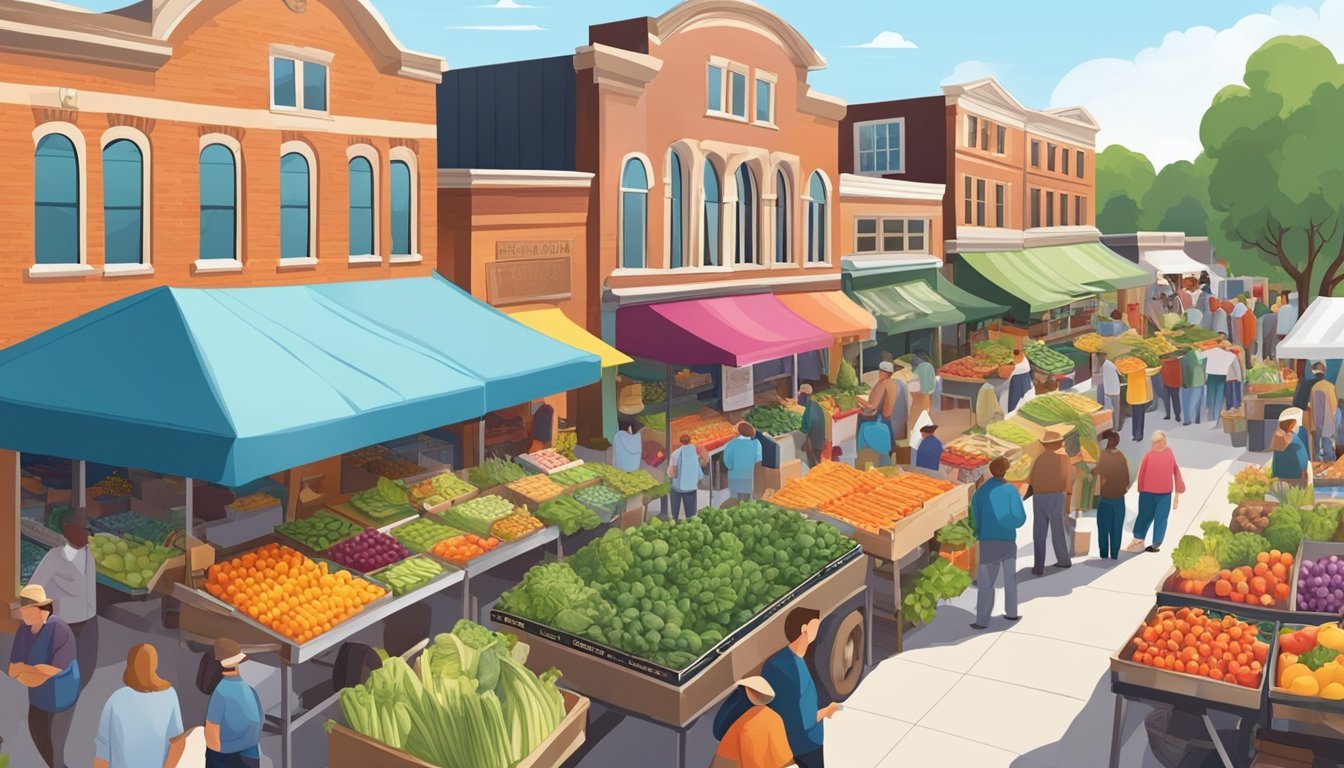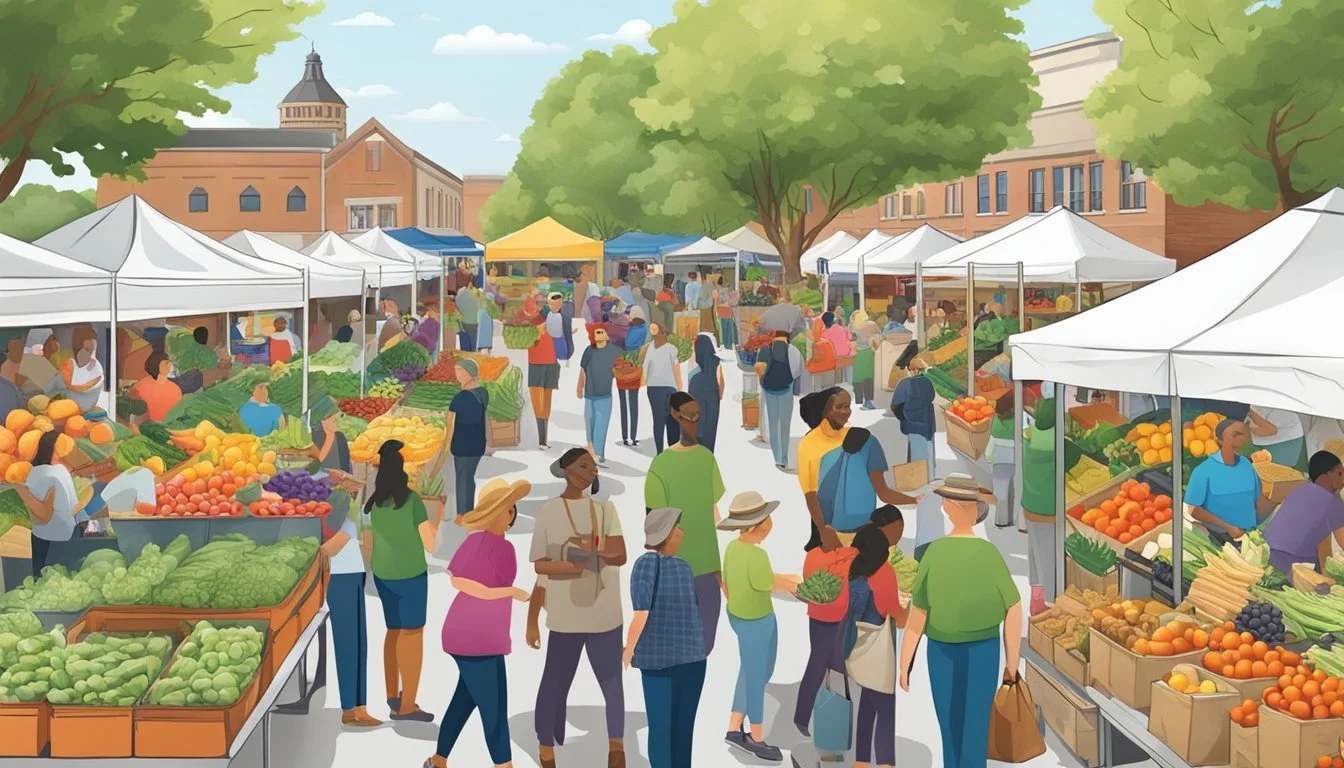Community Supported Agriculture (CSA) in Elgin, IL
A Guide to Local Farm Partnerships
Community Supported Agriculture (CSA) has taken root in Elgin, Illinois, offering residents a way to engage directly with local food systems. These programs allow consumers to purchase shares of a farm’s harvest in advance, securing a season’s worth of fresh produce while providing farmers with upfront, stable income. It's a model of food distribution that fosters a relationship between producers and the community, emphasizing the importance of sustainable agriculture practices and local economies.
In Elgin, as in other parts of Illinois, CSAs offer a variety of produce, with some farms also including options for meat, dairy, and artisanal products. This approach not only ensures that families have access to nutritious, wholesome foods but also challenges the conventional agriculture supply chain, championing a more personal connection with the people who grow one’s food. With multiple farms servicing the Elgin area, individuals and families have the opportunity to support the local agricultural community, reduce food miles, and participate in a more transparent food system.
The rise of CSA in Elgin reflects a broader national trend towards localized, sustainable agriculture. As consumers become more conscious of their food's origins and the impact of their purchasing decisions, CSA becomes an integral part of the conversation. It represents a commitment not just to personal health and taste, but also to environmental stewardship and economic support for small farmers. With a strong network of CSAs and a supportive community, Elgin is making strides in the sustainable food movement.
Understanding CSAs
Community Supported Agriculture represents a partnership between local farms and consumers that fosters sustainable practices and bolsters the local economy. It's a model that allows consumers to receive fresh, local produce while providing financial support to farmers.
What is CSA?
Community Supported Agriculture (CSA) is a system where individuals commit to a farm by purchasing a "share" at the beginning of the growing season. In return, they receive a portion of the farm's harvest throughout the season. This model creates a community around local agriculture that is invested in both the risks and rewards of farming.
Benefits for farmers and consumers
For farmers, CSAs provide a stable source of income at the start of the season when it is most needed for buying seeds, equipment, and other supplies. This financial security can help mitigate the uncertainties of farming due to weather or market fluctuations. Consumers benefit from CSAs by getting fresh, often organically grown, produce directly from the farm. They also establish a connection with the source of their food, understanding more about how and where it is grown.
Benefits include:
Early season capital for farmers
Fresh and local produce for consumers
Risk sharing inherent in farming
Deeper connection with food sources
Support for sustainable agricultural practices
Typical CSA Model
The typical CSA model involves the purchase of a share by the consumer prior to the growing season. Once harvesting begins, shareholders receive regular distributions—usually weekly—of the farm's produce. Shares may vary each week based on seasonal availability and include vegetables, fruits, and sometimes additional farm products like eggs or honey.
Shareholders could expect:
Season-long supply of produce
Variety in their diet
Community involvement through farm events
Education about sustainable practices and food sources
Local CSA Farms in Elgin
Elgin, Illinois, supports a thriving community of local farms offering CSA programs that provide fresh, sustainable produce directly to consumers. The CSA model promotes a strong connection between the community and local farmers, fostering a sustainable food system in the region.
Wellhausen Farm
Wellhausen Farm is known for its commitment to sustainable agriculture and offers an array of seasonal vegetables. They cater to the local community, emphasizing the importance of sustainable farming practices right in the heart of Illinois.
Green Earth Harvest
Green Earth Harvest dedicates itself to organic farming and enriching the soil. They offer an extensive variety of organic produce to CSA members in the Elgin area, helping residents eat healthily and support local agriculture.
Heritage Prairie Farm
Heritage Prairie Farm has established itself as a staple in the local food scene, offering not only a CSA program but also hosting farm-to-table events. Their CSA model provides residents with a selection of fresh, organically grown crops, exemplifying the farm's commitment to both quality and the local community.
All Grass Farms
All Grass Farms stands out for its pasture-raised meats and dairy in addition to produce, following all-natural farming methods. This farm allows members in the Elgin area to enjoy the benefits of grass-fed goods while ensuring they support humane and responsible farming practices in Illinois.
CSA Offerings
Community Supported Agriculture in Elgin, Illinois offers an array of farm-fresh products. They provide an opportunity for consumers to buy seasonal food directly from local farmers.
Produce Variety
CSAs in Elgin typically offer a wide range of vegetables and fruit, ensuring diversity for the community's tables. For instance, Tomato Mountain Farm is known for its variety, encompassing everything from heirloom tomatoes to crisp herbs. Members can expect to find selections of organic produce that change with the seasons.
Meat and Egg Shares
While not all CSAs provide meat and egg shares, some farms like Trogg's Hollow cater to those looking for farm-raised protein options. Subscribers to these shares usually receive a portion of sustainably-raised meat and fresh eggs alongside their produce.
Additional Products
Apart from the staple offerings of fruits and vegetables, some CSAs may include special items such as cut flowers and artisan-made products. Occasionally, offerings expand to include unique products such as turmeric or black mustard seeds, adding an exotic touch to the traditional produce box.
Membership and Subscriptions
Community Supported Agriculture (CSA) in Elgin, IL offers local residents the opportunity to become members and subscribe to weekly or bi-weekly shares of fresh, locally-grown produce. This direct farm-to-table model fosters a strong sense of community and provides tangible benefits to both shareholders and farmers.
Types of Shares
Subscribers in Elgin have the option of selecting from various types of CSA shares. Full-season vegetable shares are common, and they typically span the length of the growing season, offering a diverse array of produce. Some CSAs may offer specialty shares that include other farm products like eggs, dairy, or meat.
Subscription Model
CSAs operate on a membership subscription model. Members pre-pay for their share of the harvest at the beginning of the season, providing the farmers with upfront capital to cover the initial costs of production. This model strengthens the farmer-consumer relationship and commits members to support their local farm throughout the season.
Member Benefits
Members enjoy a variety of benefits, carefully crafted to enhance their CSA experience:
Weekly or bi-weekly shares of fresh produce.
Assurance of chemical-free farming practices.
Opportunities to visit the farm and connect with the farming process.
Pick-up locations convenient to members.
Becoming a CSA member in Elgin promotes sustainability and secures a season's worth of healthy food while strengthening the local agricultural community.
Distribution and Access
Community Supported Agriculture (CSA) programs in Elgin, IL, offer various distribution options to provide fresh, seasonal produce directly from local farms to consumers. These options include designated pickup locations, home delivery services, and a presence at local farmers markets, facilitating ease of access to fresh food within the community.
Pickup Locations
Elgin hosts multiple pickup points for CSA members, ensuring convenient access across the city. Nearby towns such as Elburn and Marengo have also established pickup locations. Typically, subscribers can collect their shares at predetermined places that might include:
Local farms: Directly from the source, providing a chance to visit and experience the farm.
Community centers: Centralized areas that serve as convenient aggregation points.
Home Delivery Services
For residents who prefer the convenience of direct shipment, some CSAs in Elgin offer home delivery services. This service extends to areas like Chicago and Wheaton, with the goal to accommodate individuals who cannot reach local pickup points. Key features include:
Scheduled Deliveries: Consistent and reliable delivery times for subscribers.
Delivery Fees: Some CSAs may charge an additional fee for the convenience of home delivery.
Farmers Market Presence
CSA farms often mark their presence at farmers markets throughout the region. This offers an alternative pickup option and a way for non-subscribers to purchase fresh produce. CSA farms can commonly be found at:
Elgin Farmers Market: A place for prospective and current members to engage with their CSA providers.
Regional Markets: Including markets in Chicago, which increase the visibility of Elgin's CSA programs and provide access to a larger audience.
Participation in The Broader Community
Community Supported Agriculture (CSA) programs in Elgin, IL, actively contribute to the broader community through sustainable practices, educational outreach, and community engagement. These initiatives foster a resilient local food system in the Chicagoland area.
Sustainable Practices
Local CSAs in Elgin have integrated sustainable agriculture practices that greatly benefit the local ecosystem. They reduce chemical use, conserve water, and enhance soil health. For instance, Fair Share CSA commits to growing vegetables naturally, offering an affordable full season of fresh produce for their members and contributing positively to the environment. Such practices are crucial in promoting long-term ecological balance in the region.
Educational Outreach
CSAs engage in educational outreach by providing consumers with knowledge about the origins and benefits of locally-sourced food. CSA farmers host farm visits and workshops, empowering community members with the skills to start their own gardens or to make informed decisions about their food. This interaction not only strengthens the bond between farmers and consumers but also elevates the community's overall understanding of sustainable agriculture.
Community Engagement
Community engagement initiatives are at the heart of CSA programs. In Elgin, these programs are important for cultivating a sense of community within the Chicagoland area. They connect farmers, consumers, activists, and policymakers, which fosters a collaborative atmosphere. By underpinning their operations with community involvement, CSAs ensure that all stakeholders have a voice and can contribute to the sustainment of local agriculture.
Impact of CSA on Local Economy
Community Supported Agriculture (CSA) significantly influences Elgin, Illinois's local economy by bolstering sustainable agriculture and providing formidable economic benefits.
Supporting Local Agriculture
In Elgin, CSA programs sustain local agriculture by offering farmers upfront revenue through shareholder subscriptions. Members invest in the season's produce and, in return, receive a portion of the harvest. This system has reduced the financial risk for Elgin farmers and allowed them to allocate funds directly towards sustainable farming practices.
Key aspects of supporting local agriculture in Elgin through CSAs include:
Direct financial support to local producers
Encouragement of sustainable agriculture
Economic Benefits
The economic benefits of CSAs in Elgin, Illinois are multifaceted. CSAs reinforce the local food ecosystem and keep the economic benefits within the community. They often lead to job creation and support ancillary businesses like local seed suppliers and farming equipment providers. Additionally, CSA members typically become advocates for local produce, which further amplifies the economic impact.
Economic benefits of CSA in Elgin are characterized by:
Job creation: Local farms hiring for various roles during the farming season
Induced spending: Money spent by CSA shareholders circulates in the local economy, supporting other businesses
By directly connecting producers and consumers, community supported agriculture catalyzes a thriving, sustainable economic environment in Elgin, Illinois. With the CSA model, local food systems are strengthened, ensuring a resilient local economy.
Challenges and Considerations
In Elgin, IL, participating in Community Supported Agriculture presents a unique set of challenges and considerations, largely hinging on environmental and economic factors.
Seasonal Variations
Community Supported Agriculture in Elgin adheres to the rhythms of the growing season. The season greatly influences the variety and volume of produce available. Spring and summer offer abundance, whereas fall and winter can result in a limited range – challenging both farmers and subscribers to adjust expectations and offerings accordingly.
Weather Dependencies
CSA operations are vulnerable to unpredictable weather events. Too much rain can flood fields, while drought can diminish crop yields. In Elgin, these weather dependencies dictate not only the success of crops but also impact the planning and distribution abilities of CSA farmers.
Market Flacutations
The economic landscape for CSA in Elgin is influenced by market fluctuations. Prices for farm supplies and competition from grocery stores can affect the viability of CSA shares. Farmers must balance offering competitive prices while maintaining financial sustainability.
Impact of COVID-19
The COVID-19 pandemic posed both challenges and opportunities for CSA in Elgin. While there was a surge in demand for local produce, it also necessitated a rapid re-evaluation of distribution and safety protocols, with farmers needing to implement contactless pickup and adhere to changing public health guidelines.
Each of these subsections reflects inherent aspects of CSA that require both farmers and consumers to remain adaptable and supportive through seasons of change.
Resources and Directory
In Elgin, Illinois, residents have access to various resources to connect with local Community Supported Agriculture programs. These resources range from directories to online platforms, along with educational opportunities designed to enhance the community's understanding and participation in CSA.
Local CSA Directories
McHenry County provides a list of local CSA farm listings, which allows residents to directly source fresh, seasonal food from nearby farms. For those residing in or near Elgin, IL:
Tomato Mountain Farm – Brooklyn; supplies the region with organic produce.
Trogg's Hollow – Located both in Poplar Grove and Elgin, offering shares of their vegetable harvest.
One should consult the Illinois Institute for Rural Affairs' directory for a comprehensive list of CSAs updated in 2009. This source is beneficial for individuals looking to find CSA options in the broader Illinois region.
Online CSA Resources
The LocalHarvest website is an excellent online resource for locating CSA programs across the nation, with a specific focus on local, sustainable food systems. Users can find CSA information for Elgin, IL, by searching the site's extensive database. Key offerings include:
Farm profiles: Detailed information on what each CSA farm offers.
Share types: What is included in CSA boxes from various farms.
LocalHarvest emphasizes the importance of CSA in fostering direct relationships between farmers and consumers over two and a half decades.
Educational Workshops
CSA members and those interested in sustainable agriculture can benefit from educational workshops. These workshops offer training and learning opportunities regarding sustainable farming practices and the benefits of participating in a CSA.
University of Illinois Extension: Provides support and training in a variety of agricultural subjects, including Community Supported Agriculture.
Local farms and agricultural organizations: Often hold seasonally relevant workshops and demonstrations to encourage hands-on learning and community engagement.
Knowledge gained from these workshops can empower individuals to make informed decisions regarding their involvement with local CSA programs.


